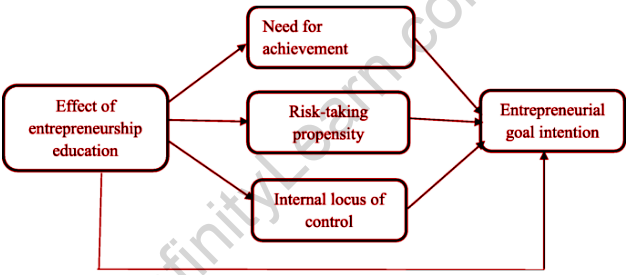Table of Contents

A fresh dream/idea/device/method; or the act of presenting new ideas/devices/methods/service/product is what innovation is. Fresh goods, business models, customer relationships, and any new dream or idea can all be innovations. However, innovation does not have to be costly. Simply the birth of something completely new. Iterations and enhancements to an existing product. Innovations might be in the form of an idea, a product, or a service. Take, for example, the iPod. Despite being far from the first, The iPod, a personal music player, ushered in new client interaction and business era. Model, which is causing a stir in the electronics business. Innovation brings about change; it upends the current status quo, but it does not always imply success. Entrepreneurship is the term for starting a new business.
Furthermore, innovation occurs in a variety of other business circumstances. Non-profits, university institutions, and governments all produce ground-breaking research. Economic and societal change are frequently sparked by dreams/ideas.
Entrepreneurship is defined as an individual’s or a group’s willingness to take risks to build, organize, and manage a business endeavour in a continuously changing global village economy.
Individuals and organizations should be aware of the implications of this relationship.
On the other hand, entrepreneurship uses innovation to make dreams/ideas a reality. It’s a social innovation that enables people to do things they previously couldn’t. Entrepreneurs take advantage of opportunities to benefit from their inventions. They start businesses and advocate for the progress of technology. Entrepreneurship is necessary for advancement, and outstanding entrepreneurs are much wealthier than brilliant innovators.
Ray Kroc did not develop the hamburger, yet he was worth half a billion dollars when he died. He was a businessman. Sam Walton’s heirs are wealthy, more than $100 billion, even though he did not invent the retail shop. He was a businessman. Henry Ford did not invent the automobile, yet he was worth about $1 billion when he died in 1947. He, too, was a business owner. All of these entrepreneurs were innovative in the sense that we use the term. It’s tough to imagine a successful businessperson who isn’t creative. You need to differentiate your good or service from the opposition, which often involves creativity. However, comparing your function as an entrepreneur to an investor is a mistake.
Intrapreneurship
Intrapreneurship is developing/discovering new services, products, or opportunities within or under the auspices of an existing company. A person who engages in intrapreneurship is known as an intrapreneur. An intrapreneur is a corporate executive who initiates a new initiative for their company that includes forming a new distinct business unit and board of directors. On the other hand, an intrapreneur is a corporate manager who initiates a new venture using pre-existing company structures.
Personal Perspectives on Risk Taking and Innovation and Entrepreneurship
To begin, I’d want to state my biases. I have a pretty clear idea of what comprises entrepreneurship and innovation. Innovation, in my opinion, is unlike anything else that has come before it. Solid and weak innovation are two types of the invention that I distinguish. Strong innovation is a brand-new concept. Weak innovation is something that already exists and has been somewhat enhanced.
To be an innovator, you don’t have to have invented something, like Steve Jobs with the graphical user interface or Bill Gates with DOS. You could have gotten the concept from someone else or seen it somewhere. However, you went with something completely different because you noticed something unexpected. Even if you didn’t invent the product or service, you have an opportunity. On the other hand, I’ve been involved in a number of business ventures. In addition, I’ve worked with inventors. Based on my observations, most business people are not innovators, and most inventors are not entrepreneurs.
FAQ’s
What does entrepreneurship have to do with innovation?
Innovation and entrepreneurship are defined as: Innovation is the process of generating something new; it does not always result in an economic opportunity. Entrepreneurship: Entrepreneurship is identifying opportunities in significant innovations, creating those opportunities, adding value, and maintaining that value through time.
What is the relationship between the words entrepreneur and business?
A person who establishes and runs a business venture is an entrepreneur. They're also in charge of any risks that come with that too. Commercialization is establishing a new business and anticipating both dangers and opportunities. An entrepreneur is in charge of arranging the necessities of a company.
What does it mean to be innovative? What is the relationship between entrepreneurship and innovation?
Innovation is all about using your creativity to develop a new thought or solution. On the other hand, entrepreneurship is the application of the invention to realize ideas. It's a social innovation that enables people to do things they previously couldn't.
What is the distinction between innovation and business?
Is that innovation is the act of inventing; the introduction of anything new in rituals, rites, or other purposeful endeavours, whereas enterprise is a corporation, business, organization, or other purposeful activity.
What are the similarities and differences between the terms entrepreneur and entrepreneurship?
Both entrepreneurs and intrapreneurs must be confident in their ability to succeed and willing to fail. They take the risk and put their ideas into action. Intrapreneurs and entrepreneurs must constantly learn new information and abilities to stay ahead of the competition.
What's the difference between an entrepreneur and a business owner?
A person who establishes and runs a new firm is an entrepreneur. They're also in charge of any risks that come with it. Entrepreneurship is the process of establishing a new business and anticipating both dangers and opportunities. An entrepreneur is in charge of arranging the necessities of a company.
Also Read: Fluid Mosaic Model Theory






